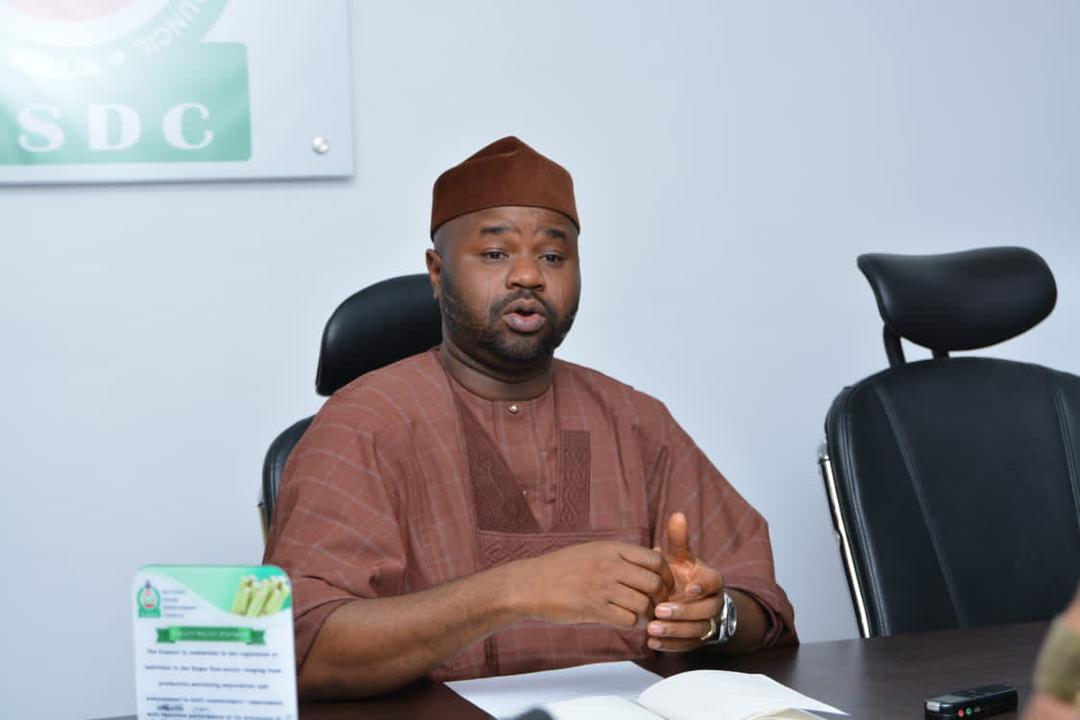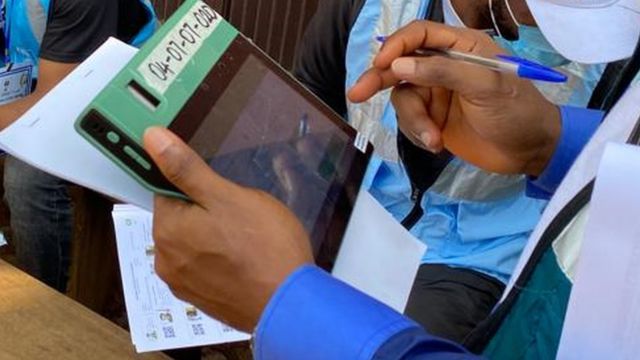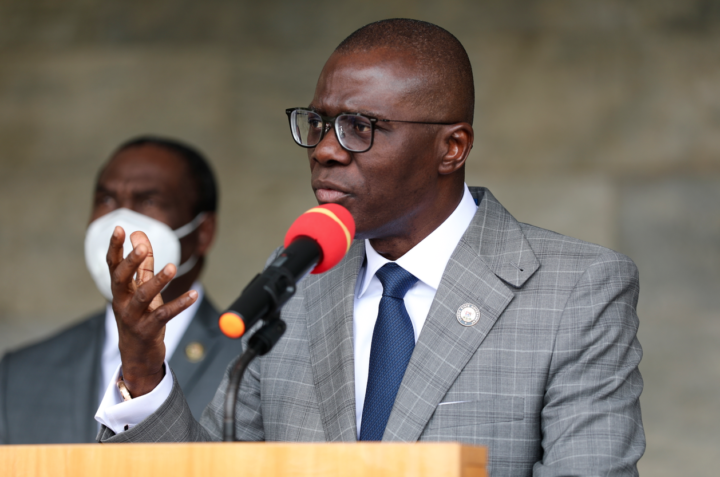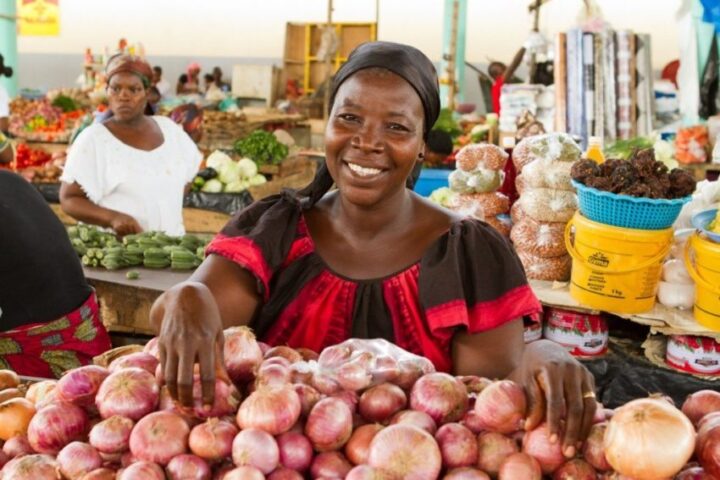Nigeria is turning around the sugar sector and aiming to create direct and indirect jobs in sugarcane farming and sugar manufacturing which can significantly reduce the current unemployment figure. The government started 10 years ago with the Nigerian Sugar Master Plan (NSMP) which is now entering the second phase of another 10 years.
Zach Adedeji, the executive secretary of the National Sugar Development Council (NSDC), says Nigeria has the capacity to supply the sugar need of the African continent. In this interview with TheCable’s YEKEEN AKINWALE, Adedeji, who was appointed two years ago by President Muhammadu Buhari, talks about reforms that are being carried out and how they would impact Nigeria’s sugar production.
TheCable: It has been over two years since you were appointed as the executive secretary of the National Sugar Development Council, what has been the experience so far?
Adedeji: I would say it has been both challenging and rewarding. Challenging in the sense that if you look at Nigeria’s quest to attain self-sufficiency in sugar production in the shortest possible time, it is a huge task and we are not looking back. We are excited and passionate about realising the goal of making Nigeria the largest exporter of sugar in Africa very soon.
Advertisement
Also, it has been an important learning curve for me and members of my team, given the peculiar nature of the sector. I’ve learnt a whole lot and I’m quite pleased with the modest gains we’ve so far recorded in the sector. When I came in, it was with a mindset to build on what my predecessors had done, especially in all the necessary groundwork relating to policies and programmes toward repositioning the sector.
I have met with relevant stakeholders and also visited our zonal offices, sugar refineries, and sugar estates across the country. I gave everyone an assurance that I was ready to work with them and carry all stakeholders along because the task before the council, which is to revitalise the sector, requires the contributions and commitments of everybody.
I was also able to make operators who are key players in the sector, and other stakeholders, pledge their commitments to the implementation of the Nigerian sugar master plan (NSMP) and get serious with their individual backward integration programme (BIP) which is the heart of the NSMP, or stand the risk of being sanctioned.
Advertisement
Let me also state that the allocation of sugar quota to companies implementing the BIP would be based on their BIP performance, and not based on their refining capacity. Going forward, especially as we roll out plans for phase two of our sugar master plan, sugar quota allocation would be strictly based on performance in the outgoing year. The era where we allocate quotas based on the size of refineries is over. The idea is to ensure that these companies get serious about the development of their respective BIP sites.
TheCable: Are there other reforms you have introduced in the last two years?

Adedeji: We have introduced external resources to support our monitoring, and that is a key reform. Monitoring is key to attaining the objectives of the master plan. We will be able to measure progress and take corrective actions if any player is not meeting their commitments. So, each operator has to submit a quarterly plan and we monitor progress against each milestone.
Advertisement
However, our main target is to deepen the industry and this will involve attracting investments and overcoming some of the constraints. Already, we are interfacing with the state governments on areas that have been identified as suitable for sugar cultivation to ensure the release of land and provision of infrastructure.
These states are Nasarawa, Kwara, Adamawa, Oyo, Niger, Taraba, Ondo, Sokoto and Bauchi. Also, in our drive to ensure that disputes over lands are resolved amicably, we came up with the idea of a forum known as the Forum of Governors of Sugar Producing States which is headed by Abdullahi Sule, the executive governor of Nasarawa state.
By law, state governors are the landlords across states, hence the decision to carry them along in our resolve to ensure that disputes over lands between host communities and sugar companies are nipped in the bud. We are also working with the Nigeria Ports Authority and the Nigerian Customs Service to try and ensure that equipment needed by our operators gets out of the ports in time, avoiding congestion. This is because sugar cultivation is time-sensitive and delays in harvesting can result in losses to our farmers, which can discourage them. Finally, we are working with the CBN to arrange single-digit funding that will support investment in the sector.
I can tell you that we are working round the clock in our quest to revamp the nation’s sugar sector.
Advertisement
TheCable: Why is the government focusing on sugar production?
Adedeji: Did you know that after rice and wheat, sugar is the third most important commodity? This was what prompted the drafting and approval of the National Sugar Master Plan to ensure self-sufficiency in the local production of sugar, ethanol, and animal feeds, and an increased capacity in electricity generation and employment.
Advertisement
Now, the Nigerian Sugar Master Plan (NSMP) is a 10-year road map policy that seeks to meaningfully revitalise the once vibrant sugar sub-sector and make Nigeria one of the leading sugar-producing nations within the continent.
The road map was first initiated in 2012. It is an ambitious and well-thought-out policy framework for the sector, which seeks to bring about a complete overhaul to enable Nigeria to become self-sufficient in sugar production, create direct and indirect jobs, generate electricity, become a notable global sugar producer, and produce ethanol for industrial use. I must say that we are quite pleased with the tremendous successes we’ve recorded with regard to the refining of imported raw sugar.
Advertisement
In fact, Nigeria has since met its raw sugar refining capacity, which is commendable. But like I’ve always stated, the successes we’ve achieved in the area of raw sugar refining must be replicated in our BIP project, which is a major component of the NSMP and has the capacity to tackle rising unemployment and also address other socio-economic challenges facing the country. We can only celebrate as a sector if we are able to grow cane and produce raw sugar locally. I know it’s a tough job, but we are more than ready to achieve our target objectives given our commitment and efforts.
Within the first 10 years of the NSMP, we’ve been able to commission a multi-billion dollar sugar factory and estate in Sunti, Niger state. We have also seen the creation of over one million direct and indirect jobs, the takeoff of moribund Nigeria’s foremost sugar company Bacita, Kwara state, and several other landmark feats have been recorded in the last 10 years in the sugar sector.
Advertisement
It is a known fact that the nation’s sugar sector has witnessed some significant reforms in the last 10 years. The sector is now well regulated; the roles of stakeholders are clearly defined; there has been the formulation of enabling laws and policies to aid growth, and heavy reliance on modern technology to drive the process.
Let me also say that research, data, and technology are very useful to us as an agency of government. Going forward, all our activities will be solely driven by research, data, innovation, and modern technology. Also, the icing on the cake for us is the eventual takeoff of the Nigeria Sugar Institute (NSI) located in Ilorin, Kwara state. Principally, the institute is the research arm of the council which is saddled with the responsibility of designing training modules and programmes for practitioners and staff of sugar companies in the country. With the NSI in place, sugar companies will have no compelling reason to send their staff abroad on training or refresher courses. As I speak to you, activities have commenced fully at the institute.
TheCable: What are the challenges facing the implementation of the master plan?

Adedeji: One major challenge is insecurity. There is a nexus between unemployment and crime because once people are busy in their workplaces, there is hardly any time for them to plan and execute evil agendas. Insecurity reduces productivity but the good thing is that the backward integration programme, the BIP component of the NSMP, has the capacity to tackle rising unemployment and also address other socio-economic challenges facing the country. BIP sites provide season and off-season jobs for hundreds of Nigerians within and outside their locations. In terms of direct jobs, these sugar estates depend on independent sugarcane out-growers for canes for their factory operations.
Also, business activities are sometimes halted due to hitches such as perennial disagreements over land ownership between host communities and operators, communal hostilities, and other associated challenges like financing and infrastructure. But we are doing our best to ensure that operators enjoy a harmonious working relationship with their host communities. As a means of addressing insecurity in sugar-producing communities, no less than 20 percent of the sugarcane grown in any area must be done by the locals to create inclusion and reduce insecurity.
TheCable: What are the benefits for the states where sugar is cultivated and produced?
Adedeji: I’d like to thank the governors in the sugar-producing states because as landlords of sugar projects in their respective domains, they have contributed to the modest success so far recorded in the industry.
The guidelines for the implementation of phase 2 of the Nigeria sugar master plan require the input of critical stakeholders like state governors for it to succeed. The NSMP isn’t about sugar production alone, we count largely on its ability to take millions of our people out of poverty, develop infrastructure and improve the economic status of communities hosting sugar projects.
We are quite optimistic about our projections in the sugar industry. We shall rely heavily on the use of verifiable data and modern technology to drive phase 2 of the master plan. The sugar sector holds tremendous opportunities for Nigeria and Nigerians in terms of job creation for our youths, increased revenue, and general economic prosperity for the nation.
To really develop the industry as we desire, it is not only the state governors that have their work cut out for them, many stakeholders across the three tiers of government and the private sector have roles to play.
TheCable: In terms of policies and programmes, what are the new things the council is working on to drive the growth and development of the sugar industry?

Adedeji: We hope to be the largest exporter of sugar in Africa in the nearest future. To achieve this lofty goal, we must all roll up our sleeves and accord priority to our backward integration programme which is the bedrock of our mission.
For instance, to address the lingering issue of the skill gap and the dearth of skilled indigenous professionals in the sector, the federal government and major sugar operators came together to establish the research institute in Kwara state. The NSI exists to train and meet the professional needs of both factory and field operators in the industry; provide jobs for skilled and unskilled workers, and also boost the economy of the host community and its environs.
Also, the federal government’s approval of the commencement of phase two of the NSMP, with actual implementation to begin this year through 2033, is an ambitious and well-thought-out move that will drive and revamp the sector to restore Nigeria’s lost glory as far as sugar production in the continent is concerned.
Like I did say earlier, raw sugar quota allocation would be given based on the performance of BIP operators and not based on the size of their refineries. We’ve communicated this to our stakeholders, especially the operators. In fact, we even made them sign recommitment forms for the BIP, indicating that they are ready to act in line with the new order put in place by the council. It is not a witch-hunt, but a deliberate and well-thought-out measure to accelerate our drive to self-sufficiency in sugar production.
Add a comment






